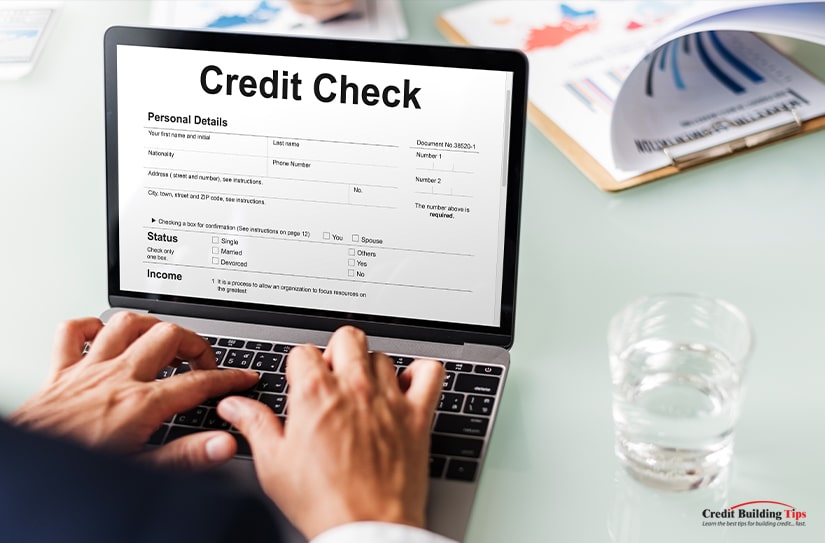Credit scores are a fact of life we all have to confront sooner or later. They've attached to us our whole lives, and they rise and fall according to our decisions, often before we even understand what credit is and what affects it.
Moreover, credit scores are inscrutable. The credit tracking agencies keep the specifics of their algorithms a secret. Many people don't even know that Equifax, Experian, and TransUnion are not the exclusive authorities on credit. There are dozens of credit reporting agencies. All of them track and weight aspects of credit differently, so your score across them all will be different.
Yet, despite all of this mystery, credit scores are a critical deciding factor for everything from your ability to buy a car to your chances of getting a mortgage. Having a lower score can tangibly harm your life and lifestyle, and you may never quite know why or even realize it's happening.
As if this wasn't enough, the internet – and casual advice from friends and family – is full of misinformation. For example, maybe you've heard this one:
"Carry a balance on your credit cards, and never pay them off completely; making regular payments helps your score!"
Did you know that this is entirely false?
We're not sure where the myth got started. Maybe it's a misinterpretation of the advice not to close a line of credit, or perhaps it's a myth put forth by banks who pull in the interest on your balance. Either way, it's not true, and it's financially better for you to pay off any outstanding loans or balances as quickly as possible (in general).
Our goal with this site is to provide accessible, easy to internalize knowledge to help you build a higher credit score and improve your quality of life. So, let's start with five tangible actions you can take to improve your credit score quickly.
Your credit score is, in part, a measurement of how reliable you are at paying off the money you borrow. This score applies whether you're getting a massive 30-year mortgage or buying $50 worth of groceries on your credit card. You borrow money, you pay that money back, regularly and on time.
One aspect of credit that hugely factors into your score is utilization. Credit utilization is the amount of your total credit that you use. Utilization also accounts for as much as a third of your credit score, so keeping your utilization low can be a considerable boost.

Your target number is around 30% or lower. So, let's talk about how you get there.
The first thing you need to do is tally up all of your lines of credit and their credit limits. Let's say you have three credit cards:
For now, don't worry about your balances. Just add up the total of all three credit limits. In our example, this is $12,000.
Next, figure out what 30% of your total limit is. 30% of $12,000 is $3,600.
 Your goal should be to keep your total running balance across all of your cards at under $3,600. If your total balance across your three credit cards is higher than that, pay off enough to get it under. Keep it low by avoiding borrowing too much whenever possible.
Your goal should be to keep your total running balance across all of your cards at under $3,600. If your total balance across your three credit cards is higher than that, pay off enough to get it under. Keep it low by avoiding borrowing too much whenever possible.Getting and keeping your utilization under 30% is a sure-fire way to boost your score.
Now, we understand that "pay off your debts" isn't exactly helpful advice for many people. Millions of Americans live paycheck to paycheck and don't have the luxury of quickly paying down debt.

Luckily, you can approach the problem from the other side as well. Consider asking your financial institutions for a higher credit limit. If your account is in good standing – that is, no late payments – they may be more than happy to raise your limits. Increasing limits will lower your percentage utilized and can be helpful to your score – as long as you don't rack up even more debt.
Most of the time, asking for a higher credit limit is as simple as calling your credit card or bank and talking to customer service. As long as your account is in good standing – even if you're already carrying a balance – many institutions will be more than happy to increase your limit for you.
This credit increase isn't always purely out of magnanimous interest in your well-being, of course. Banks want you to have a higher limit when you've proven you can pay it off because then you'll be more likely to carry a higher balance and thus rack up even more interest for them to earn off of your spending.
That's why the key here is to ask for a higher limit, but treat your spending as if you didn't have that higher limit. That way, you keep your utilization low and carry as small a balance as possible. This strategy is great because it can boost your score, but it also helps you by keeping your monthly payments small and your interest low.
 Note: Some lines of credit will pull a hard check on your credit score when requesting an increase, and others may only request a soft check or won't check your credit at all. It's advised that you ask them for this information before they pull a report.
Note: Some lines of credit will pull a hard check on your credit score when requesting an increase, and others may only request a soft check or won't check your credit at all. It's advised that you ask them for this information before they pull a report.The closer you can get to paying off your debts, the better off you'll be.
Another factor that goes into your credit score is the overall age of your credit history. The older your credit history, the more experience you have with managing your money appropriately, so the better off you'll be.
The trick here is that you have to keep old accounts active. You can't open a credit card and never use it.

Generally, our advice is to set up auto-pay on a bill or two and then forget about it. Even something as simple as a Netflix subscription can be enough to keep your line of credit active with relatively little risk of ever boosting utilization too high or otherwise breaking the pattern.
Now, you don't need to carry a balance to keep a line of credit active. You need to use it. Maintaining a balance only gives banks or financial institutions more money through interest payments and doesn't help you. Use the line of credit, but pay it off as much as possible.
Banks are not infallible. They can make errors. Payments – especially payments by check or mail – can slip through the cracks. Reports can get mixed up. Someone swapping digits on a social security number when they file for a loan can throw an issue on your information when it has nothing to do with you. Identity theft can wreak havoc.
Federal law requires that each of the three main credit reporting bureaus – Equifax, Experian, and TransUnion – provide a full credit report to everyone upon request, for free, once a year. During Covid-19, the credit reporting agencies are offering weekly reports for free. Take advantage of them if you want to keep an active eye on your credit report! You can request your information from Annual Credit Report.
 Important: You do not need to pay for your credit report if it's the first one you've requested in the year.
Important: You do not need to pay for your credit report if it's the first one you've requested in the year.Once a year, at minimum, you want to request your credit report and look for errors.

What kind of errors might you find?
Essentially, you can dispute anything inaccurate, fraudulent, or false. How do you do it?
Start by creating a list of all of the errors you find, so you can keep track of what you challenge, when, and when it's removed. You want to maintain proof in case any of it reappears.
Next, gather any supporting evidence you can to challenge the errors—for example, payment and transaction history may show zero late fees to contest a late payment report.
At this point, you want to write a Credit Challenge Letter. This letter is a formal statement to the credit bureau that you are challenging a line on your credit report as inaccurate and why. This page provides templates and examples. You can also contact the agency responsible for the error – like a bank that misreported a late payment – and see if you can fix it from their end.
 Note: if you determine that the line item isn't an error but is a case of identity theft, you can take additional steps to handle it. Here's an excellent place to start.
Note: if you determine that the line item isn't an error but is a case of identity theft, you can take additional steps to handle it. Here's an excellent place to start.In general, your credit score only keeps track of things like loans, credit cards, and other significant financial transactions.
You might be surprised. A lot of your basic, everyday transactions aren't counted. What falls into this category?
All of these are regular monthly payments that you pay on time (obviously, or else your service is canceled) and should count towards your credit score.
You might even notice that mortgage payments are counted, but rent payments aren't. This phenomenon is another example of the many systemic ways the credit system is fundamentally flawed, but that's a topic to go into another time.

The problem here is that the lender has to pay to submit the information to the credit bureaus to get those sorts of transactions reported. Your landlord or your utility company don't want to spend this extra fee, in part because it doesn't help them in any way, so you're left with all of these regular payments that don't go on your report and don't help you.
Luckily, there are a few ways you can get these reported.
Additionally, newer versions of FICO (your credit score) take these other channels into account and are slowly gaining popularity.
Considering the above tips, how much can you raise your score?
The truth is, it varies.
Some of these steps can have a near-instant effect, and you'll see a bump in your score within a month or less. Others might be more long-term since credit scores are slow to change even in the best of times.

The lower your score is, the more benefit you'll get from any given credit-boosting step you take. The dream goal is a 100-point boost, and if your credit score is low (say, 300-400), you can achieve it. On the other hand, if your credit score is already in the 700s, you're probably not going to get more than 10 points or so from them. The higher your score, the harder it is to improve. Virtually no one has perfect credit, anyway.
Luckily, you don't need a perfect score. Getting your score above 750 can get you slightly lower interest rates or better loan terms, but the most significant benefit is bringing your score from under 500 to over 600. In practical terms, anything above 650 is good enough for most people.
Sound financial habits over time, along with a few tips and tricks, can help you boost your score by a surprisingly significant amount. Be sure to check back here regularly; we'll have plenty of advice for you in the coming months, and we're more than happy to answer your questions.